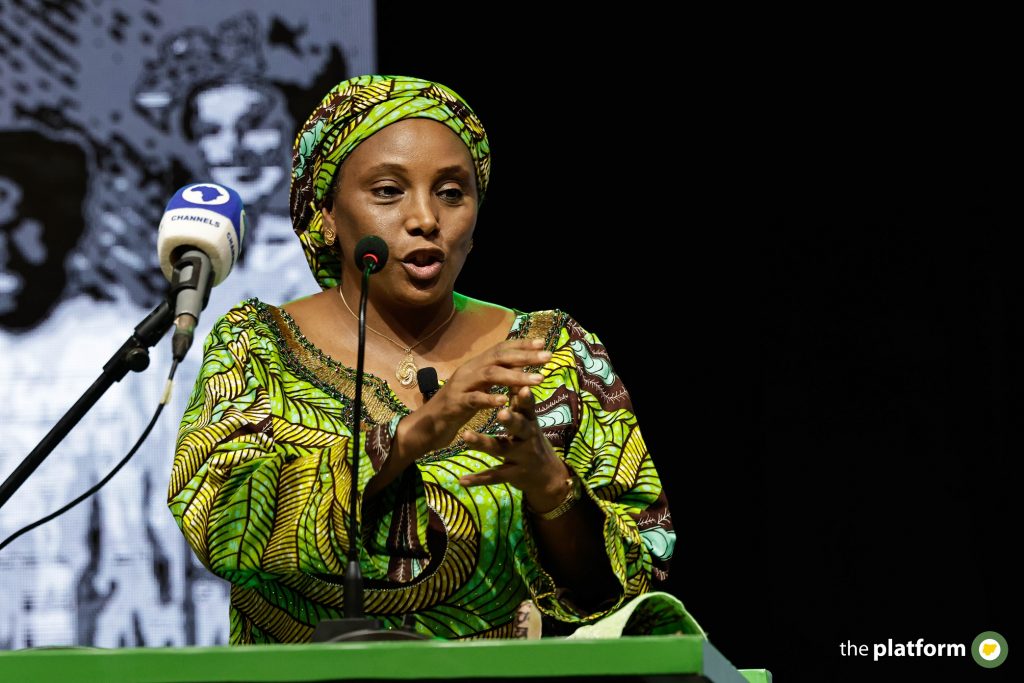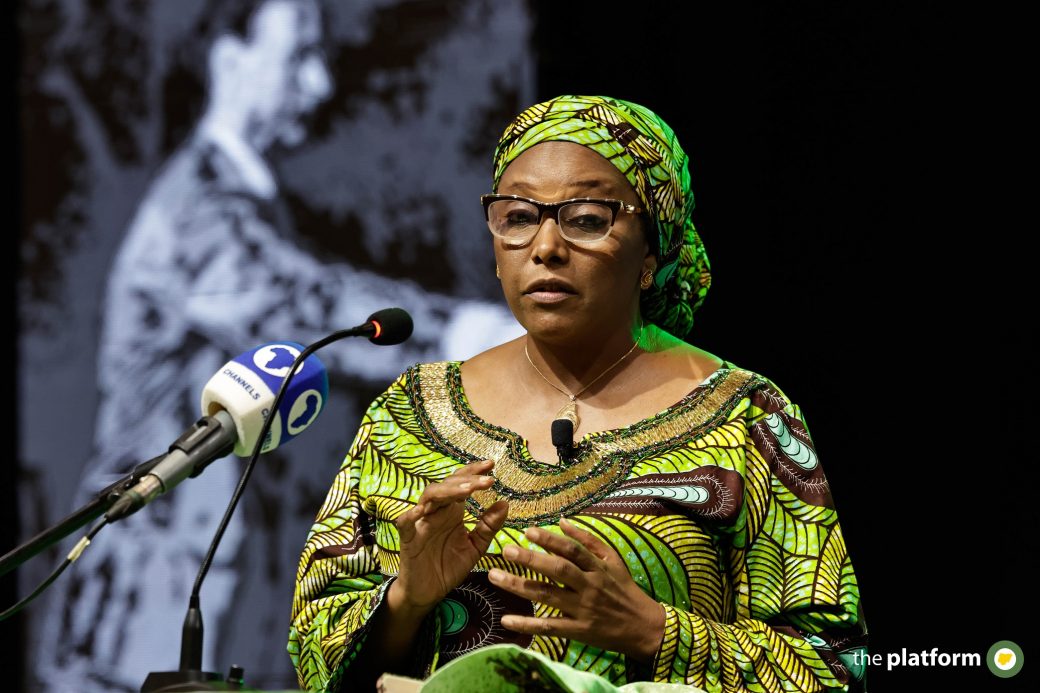Upon coming on stage, she remained silent for a few seconds and then she went on to talk about the effects of silence. One of such effects is that silence forces us to look inwards, to think of ourselves and it also forces us to think uncomfortable thoughts. To support her point about silence, she referenced Psalm 46:10 in the Bible.
She then went on to raise the point that Nigeria has a leadership problem. In addition to this, she made a list of other similar issues Nigeria currently suffers from such as insecurity, inflation, poverty, an unproductive economy, lack of fiscal discipline, corruption, lack of accountability and a myriad of other successive factors.
Reminiscing on what Nigeria was like in its independence years – 62 years ago, she referenced the hopes of the people of that time in seeing a progressive Nigeria at the time. Coming back to the present, she noted that the population who are living in affluence and luxury constitute a very few people who have benefited largely from the commonwealth of the people. She then contrasted this case of the affluent minority with the plight suffered by the impoverished majority.
As she went on in her delivery, she made a reference to how religious tolerance was practised commonly in Indonesia. She mentioned how this practice is a reflection of the country’s national Motto. Apart from this, she also talked about the significant policy changes that took place in Indonesia, and policies which can be modelled in Nigeria to fit our religion and ethnic diversity. For example, they have decentralised power and given autonomy to their regions, they have enacted policies that eliminate religious extremism, they have focused on manufacturing and have sparked their economic growth by the rising number of their middle-class population. In Indonesia, their diversity complements their unity, she pointed out.
Dwelling on the matter of unity for a while, she pointed out that without unity, it will be impossible to hold our elected officials accountable. Instead, the politicians will continue to use our division and differences against us. With a rebuke against the identity politics practised in the country, she listed examples of her rich experience and relationship with the different ethnicities in Nigeria and how the expectations of every kind of Nigerian is the same. Meanwhile, she quickly revealed that this divide and rule method is an old divide and rule trick and shockingly, it is still very effective among Nigerians even among the most educated. The problems that we suffer as Nigerians affects all of us without discriminating our ethnic and religious differences.
To better illustrate the importance of unity, she went the way of using the long standing traditional demonstration with a bunch of broomsticks to show how one bunch cannot be broken and how a stick of broom can be easily broken.
Looking at the subject of unity from a global perspective, she mentioned how all Nigerians are seen simply as Nigerians when they’re abroad rather than as individual members of one ethnic
group or the other. Even larger, every person of African descent is seen under the general umbrella of “Black people”. In other words, the notion that we’re not the same is false yet we don’t see it.
Towards the end of her delivery, she listed the consequences of some of the most commonly practised evils in Nigeria by the corrupt ruling class. Some of the evils she cited include benefiting from a tanker of stolen oil, sponsorship and endorsement of terrorism and diverting funds meant for the welfare of IDPs.
Making a reference back to the passage of the scripture she mentioned in her opening, she admonished that it was time we stayed still and paused to think, to retrospect and to be totally honest with ourselves. This would mean difficult conversations, working hard to heal divisions and wounds from the civil war and the other wars that have since followed. It would also mean sacrifice and making a commitment to building a nation and consequently, it would mean hard work too. To do this would require a quality leader and whoever the next president would be can NOT, should NOT and must NOT, pay lip service to this question of unity.


